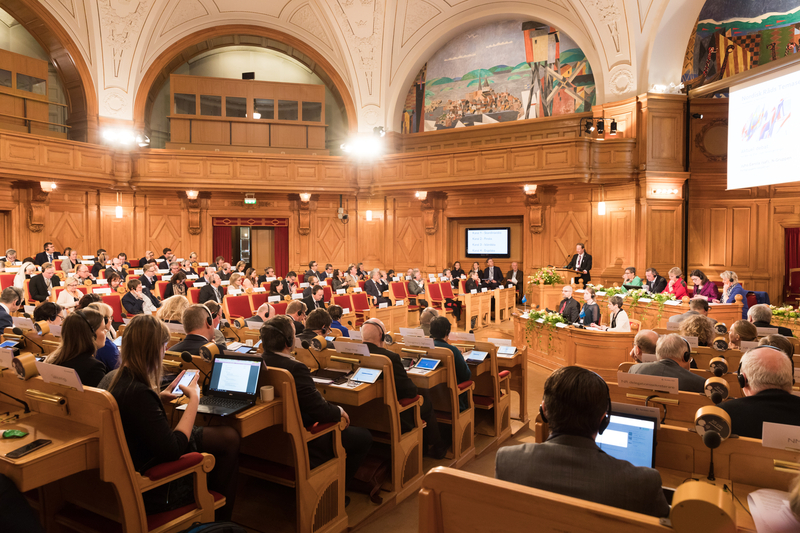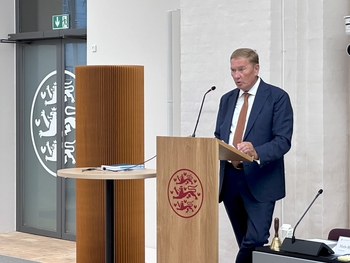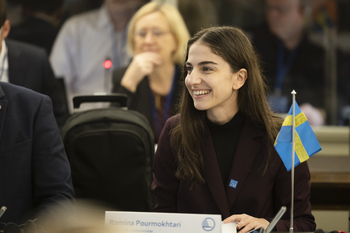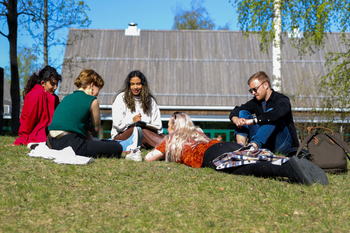Lively debate on the US and the Nordic Region

The title of the debate was The Nordic Region and the US - a new context. The debate addressed how developments in the US following the presidential election affect the Nordic Region and Nordic co-operation. Many speakers stressed the importance of closer Nordic co-operation. The main message was that together the Nordic countries have a stronger voice.
“Our experience is that when the Nordic countries speak with one voice at international meetings, they have a greater and often considerable influence. When the Nordic Region speaks as a common entity in international forums, people listen,” said Iceland’s Sigurður Ingi Jóhannsson of the Centre Group.
Tuomioja emphasises peace efforts
Several politicians pointed to Nordic values such as gender equality, human rights, measures to combat climate change and promote peace, tolerance, and transparency, stating that these should now be emphasised even more strongly.
We do not prosper by building walls and isolating ourselves. We prosper by building bridges and working with one another.Erkki Tuomioja from the Social Democratic Group warned that we are living in a time of warlike rhetoric and militarisation.
“It’s vital that we focus on areas in which the Nordic Region is well placed to help diffuse situations, bring stability, and promote peace. These areas include crisis management, peace mediation, humanitarian aid, environmental policy, climate change, gender equality, and human rights,” Tuomioja said.
“Protect free trade”
One topic raised by Hans Wallmark of the Conservative Group was the protection of free trade.
“We do not prosper by building walls and isolating ourselves. We prosper by building bridges and working with one another,” Wallmark said.
Following Tuomioja, Jonas Sjöstedt of the Left-Wing Socialist Green Group highlighted peace efforts and suggested that the Nordic countries take the lead and abolish arms exports to dictatorships, countries at war, and countries that violate human rights.
“We’re proposing a nuclear-free zone in the Nordic Region and the Arctic, as well as a joint Nordic taskforce in the UN’s peacekeeping operations,” Sjöstedt said.
Several commentators agreed on the importance of good relations with the US and the new administration under president Donald Trump. Juho Eerola from Nordic Freedom was one of them.
“From a Nordic perspective, it’s important to maintain good and close relations with the US,” said Eerola, who also called for more interaction between the Nordic Council and the US Congress.
Much of the debate addressed security policy and the role of NATO with Trump in power.
Ministerial participation
Three ministers for Nordic co-operation took part in the debate. The debate was opened by Sweden’s Margot Wallström, who is also Sweden’s Minister of Foreign Affairs. One of the topics she raised was climate change, saying that the Nordic Region should now do more to establish contact with the individual US states.
“The pursuit of an ambitious environmental and climate policy is a prerequisite for sustainable economic development. The US risks falling behind if it follows the path hinted at by President Trump. Consequently we must develop new strategic partnerships with like-minded states and demonstrate how the Nordic Region can contribute to creating growth in the US,” Wallström said.
Norway’s Minister for Nordic Co-operation Frank Bakke-Jensen said that the US is Norway’s most important ally, and that Norway is dependent on good relations with the US regardless of who is president.
“Our good relationship with the US doesn’t prevent us from speaking up when we disagree. Quite the opposite, in fact.”
Bakke-Jensen also said that Norway’s membership in NATO has helped to contribute to stability in the north and served as a basis for broader co-operation, even with Russia.




